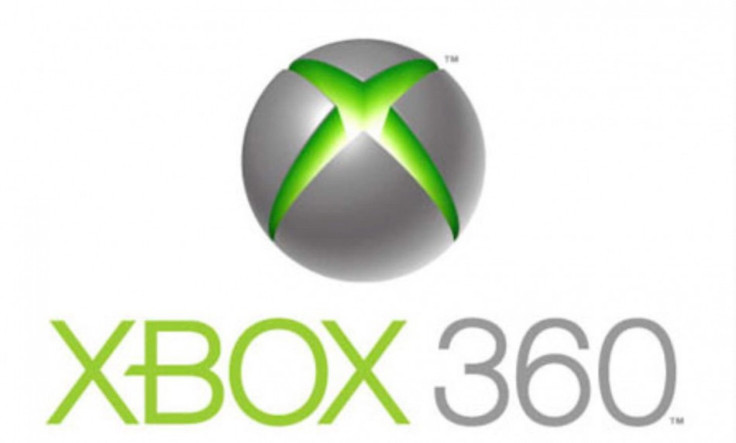Microsoft Courting Former OnLive Employees: What Does This Mean For The Next Xbox And Cloud-Based Gaming?

According to VentureBeat, Microsoft is courting former OnLive employees now that the game-streaming company has entered a period of restructuring that caused layoffs for multiple employees. As Gamasutra reported back on Aug. 20, OnLive will reorganize itself in an effort to generate higher revenue; the initiative is due to the high cost of server space. Originally, OnLive planned to hire back a majority of its laid-off staff; however, with news that Microsoft is eyeing OnLive employees for potential positions within the company, one wonders what this means for both Microsoft and OnLive.
Microsoft is looking to host the mixer at its Mountain View, California facility, which is not far from OnLive's Palo Alto headquarters. Microsoft's Eventbrite invitation reads: "We are eager to speak to individuals and teams affected by the OnLive transition. With the stunning success of Xbox/Kinect and the accelerated growth of this business, we are looking to add key players who want to make a real impact in creating groundbreaking new products and services."
Part of the attraction of the cloud (for many companies, not just Microsoft) is the seamless integration of media hubs, gaming platforms and social media, thus making the user's experience streamlined, in a way.
What This Means For The Next Xbox Console
The next Xbox console (codenamed "Durango") is reported to put a heavy emphasis on cloud-based gaming and memory storage. The current-generation Xbox 360 incorporated cloud saves in its last holiday update, although the space allotted to a gamer isn't a tremendous amount, its an indication that the company is eyeing cloud-based gaming as a legitimate concept for its next system. The fact is, Xbox Live is server-driven, so Microsoft clearly has the capabilities to launch into the next-generation of cloud-gaming technology by bringing on more minds who know the cloud inside and out.
As Silicon News pointed out last month, Dave Cutler, a pioneering mind in cloud-based advertising and development, the hope is to push developers toward a more cloud-friendly concept, by working with Xbox Live more. By incorporating Microsoft's Bing service into the current-gen Xbox, Microsoft could be hoping to make a more well-rounded social console that would utilize the cloud in addition to its many media hubs. By pulling information stored on the cloud, users of the next-generation Xbox will have access to countless hours of content and material, and, conceivably with the help of OnLive staffers - games.
Just because cloud-based gaming and memory storage is a reality that's right around the corner for most console-owners doesn't mean there will be a transition away from existing physical media. Industry Gamers pointed out back in November, 2011 that the next Xbox console won't lose a physical disc drive. This is important to note that even though Microsoft is pushing ahead with cloud-based gaming, retaining a disc drive indicates that it's still making a commitment to physical media, as well. M2 research analyst Billy Pidgeon told Industry Gamers at the time, "I don't expect vendors to leave physical media formats out of next generation consoles. Gaikai and OnLive are viable game delivery systems but in the near term cloud gaming services can't yet allow access on a scale to realize their inherent disruptive potential. Again, back to boring basics, next generation game consoles and dedicated gaming handhelds must link to user accounts stored on servers rather than locking down identity and content ownership at a device level. If Nintendo and Sony do not follow Microsoft's lead here, it will cost them market share next generation,"
Praising OnLive perhaps may have been a bit premature, however; the core idea is still there, Microsoft has shown their commitment to cloud-based gaming and storage, even long before the OnLive situation occurred. DFC Intelligence analyst David Cole offered a slight rebuttal to the notion of cloud-gaming dominating the future for Microsoft (or any company, for that matter), "half the fun is rushing to fight the crowds at GameStop to get your hands on a copy hot off the truck. You take that away from customers and you lose a great deal of business. It is very different from the business side of Microsoft. So when Microsoft talks about the cloud technology in Xbox 720 I think it is often more the business/technology side versus the entertainment/marketing side."
Gaming And The Cloud
Storing a game's saves via the cloud is a relatively simple task. Xbox Live allows players to transfer their saved games and their gamer profiles to the cloud for simple transition to a friend's Xbox 360 console. If Microsoft is only looking to enhance this concept by hiring more OnLive employees, that would seem a tremendous waste of talented developers and staff members.
The only indication would seem to be a full-court press by Microsoft to enter into the cloud gaming market, lock, stock and barrel. Sony has also jumped onto the cloud-saving bandwagon, however; they require additional fees for Playstation Plus subscribers. While and Xbox Live Gold Membership costs around $50 per year, Microsoft's membership grants players access to every piece of content on Xbox Live, including cloud saves.
© Copyright IBTimes 2025. All rights reserved.





















